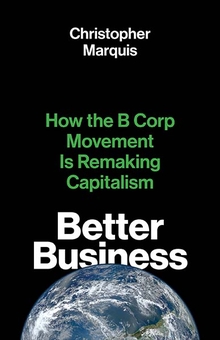Myth: Shareholder Primacy Is Better for Investors
Christopher Marquis—
In 2012, the late Lynn Stout, a renowned legal scholar at Cornell Law School, published The Shareholder Value Myth: How Putting Shareholders First Harms Investors, Corporations, and the Public, a no-holds-barred exposé of the lies the corporate world tells itself about shareholder primacy and an explanation of why following that path will lead to disaster. Stout sharply questioned the supposed efficiency of the system, pointing out the inherent conflict posed by the fact that there is no single shareholder value: the strategies and values that work for one shareholder at a specific point in time may offer dismal results to other shareholders over a longer length of time. We see this very clearly in the behaviors of short-term and long-term investors. Short-term investors often push strategies that temporarily cause a market price to increase; then they sell, and the company pays the price. Without some type of unity among shareholders—a corporate purpose embedded in the corporation’s governing documents, for example—long-term impact and improvement cannot happen.
Such an effect is even more pronounced in capital markets that are dominated by institutions, as is the case in the United States and most other developed countries. Institutional investors—pensions, retirement funds, mutual funds—all hold highly diversified long-term portfolios that encompass the global market. It is important to recognize that these institutional investors are, in reality, all of us. It is our retirement plans and pensions that make up these investments, and we are the beneficiaries of the gains. Every decision they make regarding where to invest the nation’s money affects all of our lives—what type of policies are pushed forward, what type of issues are brought to the forefront of the world’s attention, how the country’s social and environmental issues are addressed, and more.
Because of their massive size, these investors are essentially “universal owners”: their holdings represent the economy in general as opposed to one specific investment, and so they require the entirety of the market to be healthy, not just one company. Research tells us that for universal owners, more than 80 percent of financial returns come from the performance of the market itself, not the fluctuations of one particular investment. Because of that, the most important things affecting investment performance for the vast majority of Americans—these universal owners—are big-picture (“macro”) characteristics such as levels of pollution, societal unrest, and other broader social and environmental trends that are frequently thought of as externalities. These issues affect the economy as a whole, and therefore their portfolios. Meanwhile, people who invest for short-term gains are much less interested in macro issues and, in fact, may consider it wasteful for a company to invest in employee training, pollution abatement, or any environmentally conscious work—the kind of spending that would minimize their short-term returns.
Rick Alexander, who has been recognized as one of the top ten corporate lawyers in the world but who now calls himself a “recovering corporate lawyer,” describes it this way: “I think that there needs to be public engagement where there is a cultural mind shift to explain that what’s good for GM specifically, for example, might not be good for America.” Alexander until recently headed legal policy at B Lab, and in 2019 founded the Shareholder Commons, an organization dedicated to working with the capital markets more broadly to overthrow shareholder primacy. He explains that, because shareholders of GM also own companies like Apple and Alphabet (the parent company of Google), the notion of doing what is “good for GM” should not be narrowly focused on shareholder monetary returns; instead, people need to start considering what can lead to “a thriving world and economy where everybody can do well.”
From Better Business by Christopher Marquis. Published by Yale University Press in 2020. Reproduced with permission.
Christopher Marquis is the Samuel C. Johnson Professor in Global Sustainable Enterprise and Professor of Management at Cornell University.
Further Reading:



























